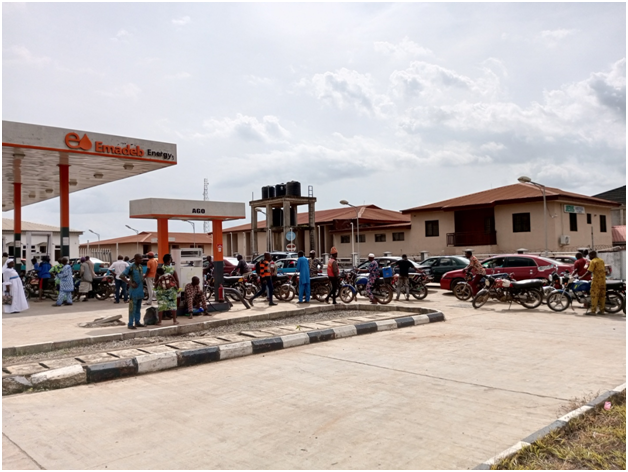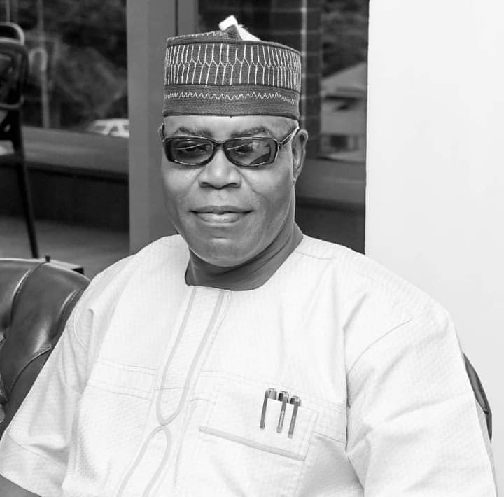Ahérégbé and 21st century ‘restless rest’
By Busuyi Mekusi
|
Human evolution, societal growth and regeneration, as well as inevitable adjustments and modifications to patterns of existence and civilisation are woven in one intricate web, which does not only entangle sometimes, but precipitate implosion and explosion. Such vexatious interactions between people from across cultural borders were notably artistically characterised in postcolonial literatures, particularly as it relates to Eurocentric superiority and African inferiority. Achebe’s Things Fall Apart and Soyinka’s Death and the King’s Horseman typify the tendentious interface of the West with African civilisation, the preposterous opinion of the former, and the retribution faced by Okonkwo and Elesin Oba, in the respective frontal and lacklustre protection of their culture.
Among other delineations, culture is described as customs, lifestyles, habits, beliefs, values, behaviour and material objects that constitute the way of life of a people, and characterise a particular society or nation. These could also coalesce into a bundle of knowledge that gets passed from one generation to another. One important aspect of culture is the geographical location within which it is practiced. Therefore, apart from the evolutionary prospects of culture, the ecological dynamics available to it are as critical as the practitioners. Culture is a complex entity that is dynamic. It is not static but fluid, making it open to constant changes, both subtly and concretely. It is to this end that theorists of culture and psychology accept ecological and political environments as veritable indices for cultural dynamism. Some cultural festivals in Nigeria are: the Argungu festival in Kebbi which began as a religious festival and now blended with fishing competition; the Osun Oshogbo festival, where the bearer of the calabash containing the sacrifices for the whole community intermediates between goddess of Osun and the people.
Others are new yam festivals done in many towns and villages in south eastern and western Nigeria, to celebrate the harvest season. Similarly is the Eyo festival that is basically associated with Lagos state. The festival evolved as a response to the cultural belief of escorting the soul of dead kings or chiefs, even though this significance has undergone different changes that patently liberalised it. This festival, in keeping with transnational migrating potential of culture, is said to have inspired the modern carnival held in Brazil. The Calabar carnival that has been described as Africa’s biggest street party is another.
Durbar festival that is popular in most northern states is used to mark the end of the month of Ramadan. Most interestingly, Sharo or Shadi flogging festival is a detrimentally unique rite of passage for Fulani youths, when young bare-chested boys are required to bravely endure rigorous flogging to demonstrate their manhood, after which they would be considered mature enough to marry. Ogun festival is popular among Yoruba, and is used to commemorate the bravery of the personality that is credited with the value of ‘god of iron’. Other festivals include Aheregbe and Ulefunta, which are celebrated in Akure.
Akure community is not just the capital of Ondo State, with sprawling cosmopolitan propensity but a rich cultural centre with relatively long history that has transcended events and projections. Whereas Akure shares deep linguistic and cultural properties with other towns in the old Akure Division, the ancestral cultural connection it has with Oba Ile is stronger, in relation to evolutionary and migratory considerations. This explains why Aheregbe festival is popular in Akure and the neighbouring Oba Ile, believed to be the origin of the festival. An exclusive report by a staff of Orange FM, Akure, Gbenga Oluwajana, opines that Aheregbe festival could be traced to the 12th century, during the reign of Oba Obagbeyi Adegite, the 11th in the lineage of Oba of Akure, now known as the Deji, who ruled between year 1313 and 1363.
Aheregbe is also known as DÚDÙDÚ, which is a repetitive metaphorical representation for ‘scramble for it’. The import of the Aheregbe festival is to get Akure residents, particularly traders who are believed to be involved in back-to-back trading activities, to rest. At the same time, the residents are expected to use the day to pray for the progress of the town, while the Deji would similarly pray for his subjects. The Uléfunta festival is the traditional annual leave for the Deji, when he would be in seclusion for seven days, after which major celebrations would herald his reappearance.
The Aheregbe festival prescribes that markets and shops be closed to achieve the holiday and attention required for the accompanying prayers. The closure of markets and sales outlets is enforced by a chief, Asoga, who is to lead the Isibi to enforce compliance with the closure order. Traditionally, any sales centre or shop that opens for business on the day of Aheregbe would be raided, as the loots would be gathered and taken to the king’s palace for sharing among the raiders. The closure order by the Deji is usually sufficiently communicated to residents beforehand. However, the performance of Aheregbe festival in the changing environment of Akure has precipitated some negative reactions in recent times. While some non-indigene Akure dwellers believe that due respect should be accorded the cultural practice of their host community, others have vociferously condemned the incessant closure of markets and shops, which they considered inimical to their economic interests, given an informal and depressing economy where most commoners depend on daily earnings to feed their dependants. The restlessness and restfulness of traders during the government-instructed COVID-19 lockdowns were indicative of how desperate pauperised people could be.
Another concern associated with Aheregbe Festival is the obnoxious looting of items not necessarily on display in a market or shop. Report had it in a year that the goods of a sale’s rep who was going to drop his child in school on Aheregbe day were looted, after he was forcefully flanked down, giving them access to the enclosed vehicle. In 2022, under the guise of Aheregbe celebration, a heap of plantains usually gathered for transportation to Lagos at a spot opposite Benin Park, along Owo road, was looted by miscreants. It was also reported that Nodal Pharmacy, which opened as a result of the exception granted to pharmaceutical shops by the Deji-in-Council, got its glass door vandalised by arsonists who attempted to violate the premises in the name of Aheregbe. The implications of this licensed cultural brigandage by these interlopers include unwarranted economic loss, human fatality and possible breakdown of law and order.
The 2022 Aheregbe festival was potentially volatile because of the resolve of Iralepo of Isinkan to get markets and shops in his domain to open for business, forcing government to prohibit same after the Deji issued a statement to reinforce his early one banning commercial activities in Akure. We should be reminded that the stools of certain communities in Akure are being contested in court by the Deji, who at best continue to insist on his paramountcy over some Obas like Iralepo that have been recognised by government. The Ondo state government further intervened that no traditional ruler should close markets without approvals from it, and that such closures would only be limited to the Oba’s market when the approval is given. A socio-cultural group in Akure, Ooye Development Initiative (ODI), in a scathing statement described the intentions of government to ban market closure as anti-culture, and a direct attack on the town and the king. The reference to the implicit hatred of the governor for Akure people and the monarch, as well as the parallel drawn between Akure and Owo, the hometown of Akeredolu, and Aheregbe and Igogo, were unnecessary, to say the list, if not for belligerence.
With this evident no-love-lost between the government and Akure stakeholders, there is the urgent need for caution. Political authorities should not allow their legalising spectres to overshadow their respect for royalty, and traditional institutions must stay within their powers, as absolute powers corrupt. Both formations that are human representatives should complement each other, and not undermine their relevance. Going forward, there should be due interface between government and traditional institutions, even as the latter must allow dictates of modernity and civilisation to substantially reshape traditional festival celebrations, as the only thing that is constant in life is change.
Specifically, Aheregbe festival, and others in the pack, should be recalibrated and projected for appropriate buy-in by residents, while Akure dwellers remain open and tolerant of their environment. To achieve this, duplicitous festivals with the same notion of market closure should be reviewed, and made more acceptable to residents. Aheregbe should be elevated to the status of a carnival, with the central aim being prayers, conviviality and tourism. As against the present palpable feeling of right violation, recriminations would become less pronounced with majority ownership of the rebranded festival.
In order not to give the impression that the celebration of Aheregbe is an oppressive instrument of the poor, modern malls and sales outlets, as well as banks, should be invariably part of the holiday, if inevitable. Learning from the celebration of carnival-like festivals across the world is imperative, as Akure interrogates the present, by looking into the future from yesterday and today, just as the people struggle with ‘restless rest’!










